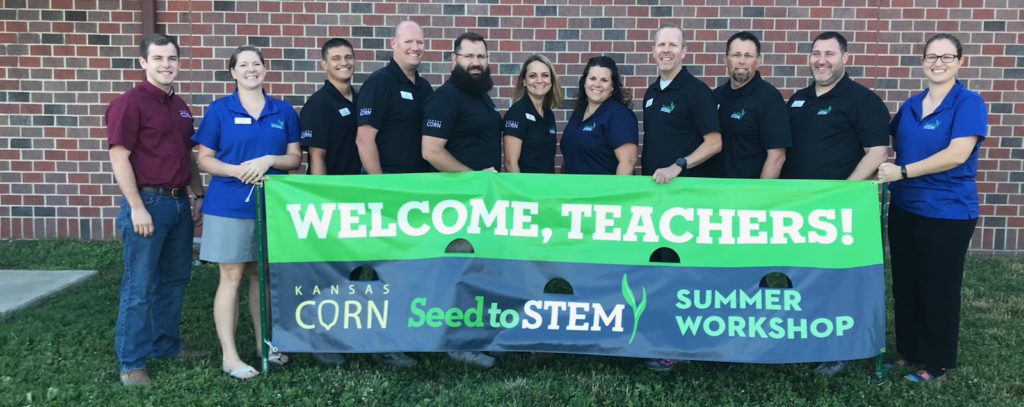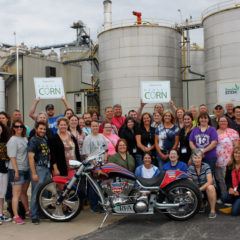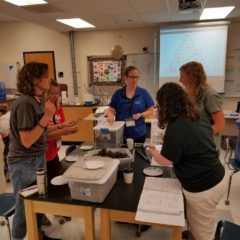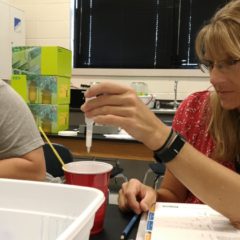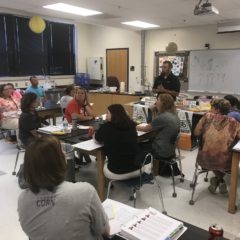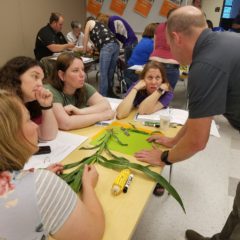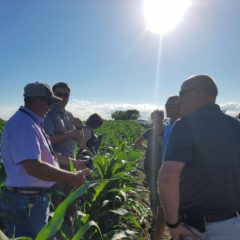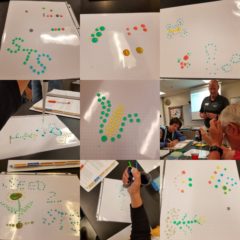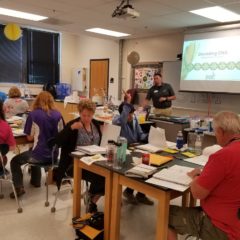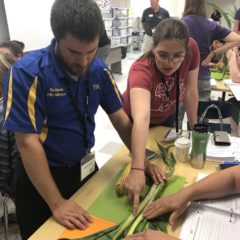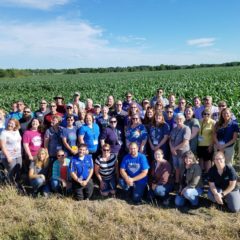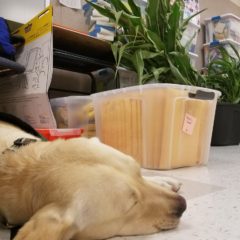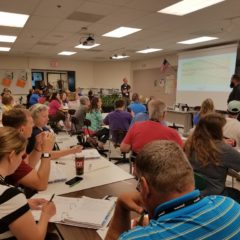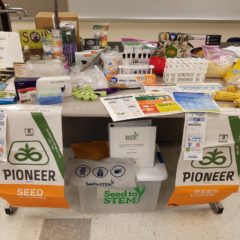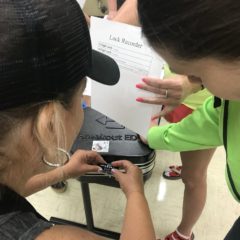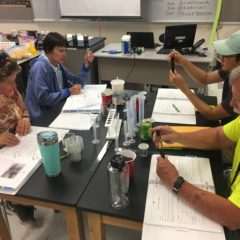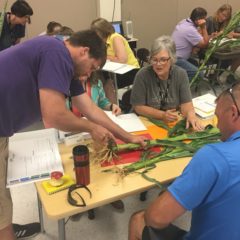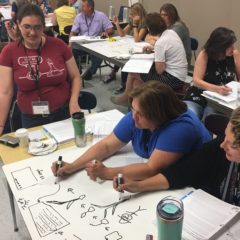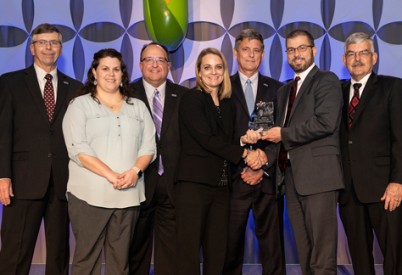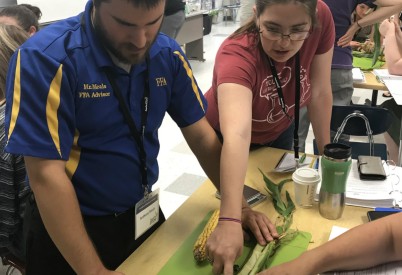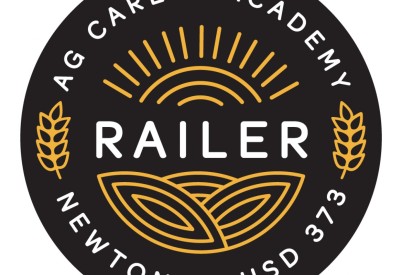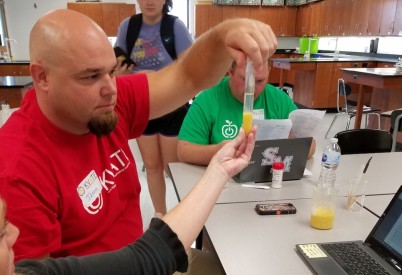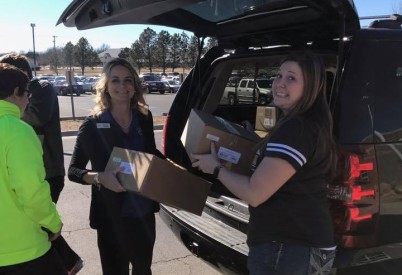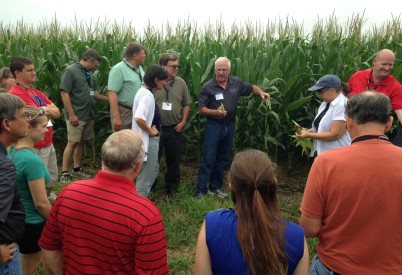Teachers helping teachers at Kansas Corn’s Seed to STEM Workshops
Blog post by Ben Pinkston, 2018 Summer Intern
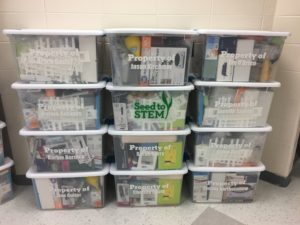 Understanding the importance of youth education and agriculture in the classrooms, the Kansas Corn Commission revamped and continued its Seed to STEM teacher workshops this summer. At these trainings, middle and high school science and agriculture teachers were equipped with curriculum and over $500 in supplies to lead their students in corn-based labs this coming school year.
Understanding the importance of youth education and agriculture in the classrooms, the Kansas Corn Commission revamped and continued its Seed to STEM teacher workshops this summer. At these trainings, middle and high school science and agriculture teachers were equipped with curriculum and over $500 in supplies to lead their students in corn-based labs this coming school year.
As a summer intern, I had the opportunity to attend the workshops in Ottawa and Wichita this past month. In my role, I helped make sure that our participating teachers were comfortable and had what they needed, but once the labs started I stepped back and watched our facilitating Lead Teachers go to work.
In the months leading up to these workshops, these eight teachers from around the state put their heads together with our staff to develop an effective, inquiry-based curriculum. In presenting these lessons, the Lead Teachers taught as if they were in their own classroom, giving helpful hints about classroom management along the way. Participating teachers were encouraged to tweak the curriculum as needed to best fit their students and their teaching style.
As a college student myself, it was inspiring to witness this approach to instruction and professional development. Reflecting on my experience, here’s my top two takeaways:
- The teachers that participated in Seed to STEM were sincerely viewed as a sound investment and were treated as such. All teachers in Kansas have opportunities every day to influence kids, not only in their education and career paths, but in their values and worldview. If those in agriculture want to influence the next generation to appreciate and understand our food, fuel, and fiber system in the U.S., then our teachers must be supported. The labs that these teachers were provided with are dense with facts about the agriculture industry, and the urgent need for science minded young people to enter the agricultural workforce.
- Choosing to have other teachers develop and facilitate the curriculum made the experience transparent and relatable. The Lead Teachers understood the daily challenges of middle and high school classrooms. This perspective aided them in being more effective in sharing the information and strategies.
The Kansas Corn Commission believes in education, in our educators, and is excited to continue building positive relationships through the Seed to STEM program.

